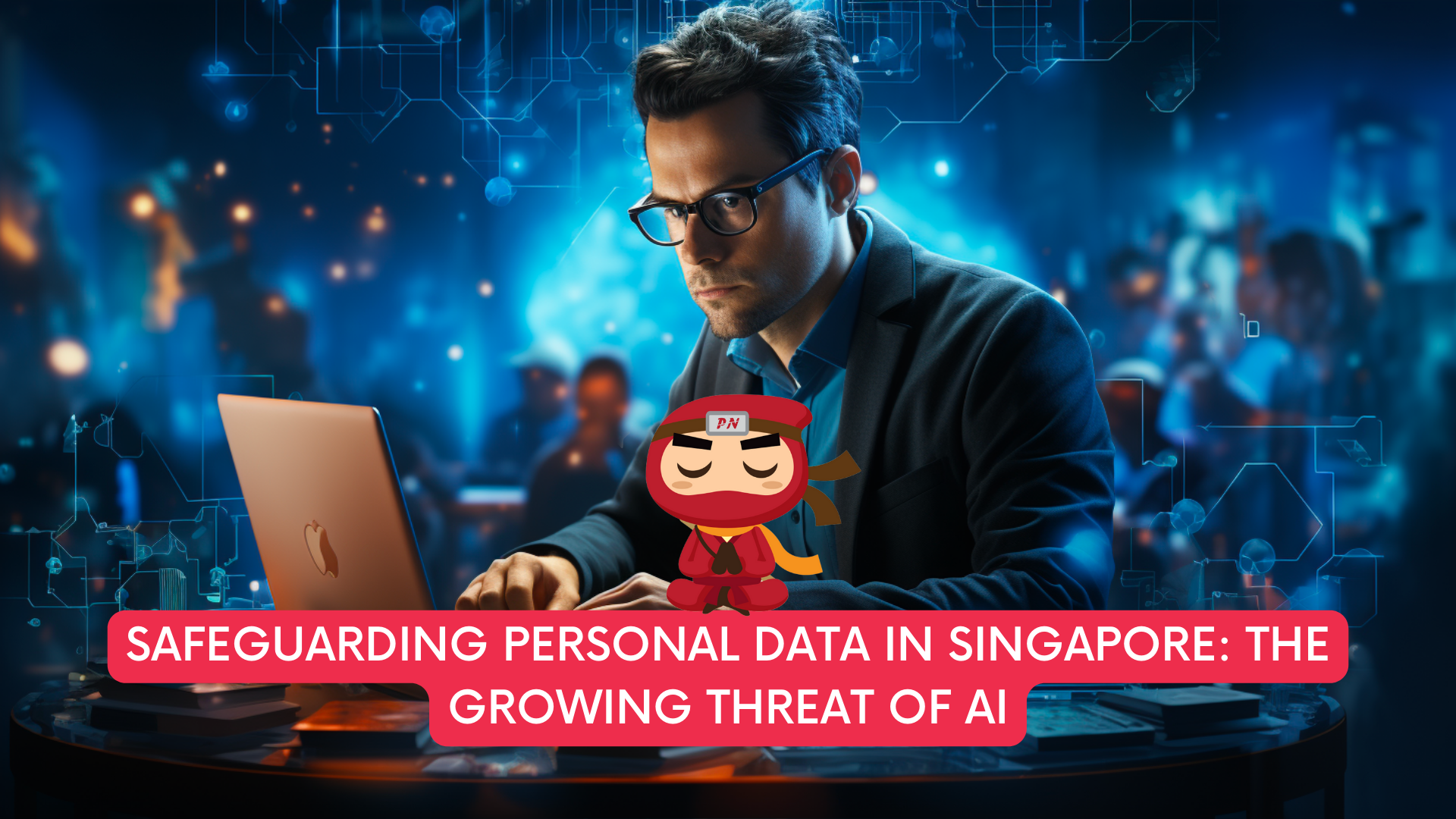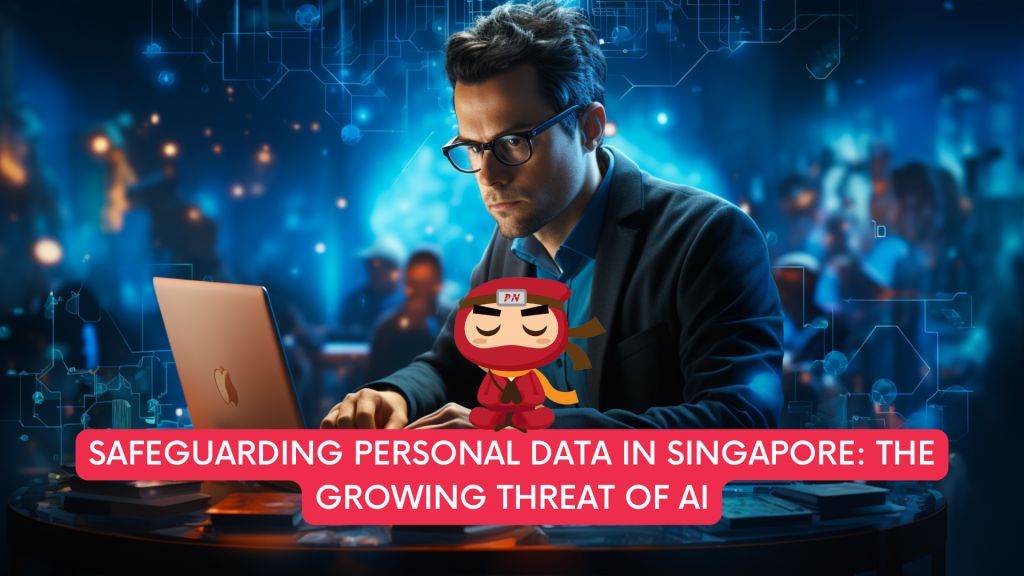KEEP IN TOUCH
Subscribe to our mailing list to get free tips on Data Protection and Cybersecurity updates weekly!







In the technologically advanced landscape of Singapore, artificial intelligence (AI) has emerged as a powerful tool with the potential to revolutionise various industries. However, as the integration of AI continues to grow, so does the concern surrounding personal data protection.
This article delves into the evolving landscape of AI in Singapore and explores the inherent risks it poses to safeguarding personal data. We will analyse the challenges and provide insights on how individuals and organisations can address the growing threat of AI in the realm of data privacy.
Singapore, known for its vibrant innovation ecosystem, has embraced AI with open arms. From enhancing customer experiences in retail to streamlining financial services, AI-driven solutions have permeated numerous sectors.
The government’s Smart Nation initiative further promotes the adoption of AI and data analytics to create a more efficient and connected nation. While these advancements have brought about numerous benefits, they have also exposed individuals to potential risks regarding their personal data.

AI systems heavily rely on data, particularly vast amounts of personal data, to function effectively. From social media interactions to online purchases and even health records, individuals generate a substantial digital footprint.
The collection, storage, and analysis of such data enable AI algorithms to make accurate predictions and tailor services to individual needs. However, this very data-centric nature of AI raises significant concerns about privacy and data protection.
AI’s growing prominence in Singapore’s digital landscape presents both opportunities and challenges, particularly concerning personal data protection. As technology continues to evolve, safeguarding personal data becomes an increasingly critical endeavour.
By fostering a collaborative effort between governments, organisations, and individuals, Singapore can effectively address the growing threat of AI to personal data protection. By adopting robust regulations, promoting ethical AI practices, and enhancing cybersecurity measures, Singapore can secure its position as a leader in the responsible and privacy-centric deployment of AI.

Your appointed DPO can work with you on your PDPA compliance, ensuring that there will be policies in place to make sure that the handling of personal data is PDPA compliant.
A Data Protection Officer (DPO) oversees data protection responsibilities and ensures that organisations comply with the Personal Data Protection Act (PDPA). Furthermore, every Organization’s DPO should be able to curb any instances of PDPA noncompliance as it is the officer responsible for maintaining the positive posture of an organisation’s cybersecurity.
DPOs complement organisations’ efforts to ensure that the organisation’s methods of collecting personal data comply with the PDPA. It also ensures that policies are set in place to make sure that there will be no instances of data breaches in the future.
Don’t wait any longer to ensure your organisation is PDPA compliant. Take our free 3-minute PDPA Compliance Self-audit checklist now, the same “secret weapon” used by our clients to keep them on track. Upon completion, we will send you the results so you can take the necessary action to protect your customers’ data. Complete the free assessment checklist today and take the first step towards protecting your customers’ personal data.